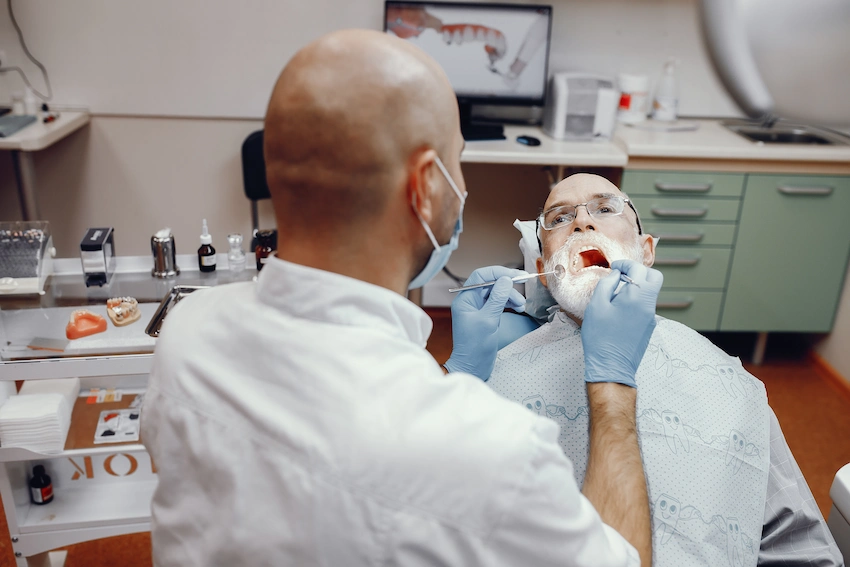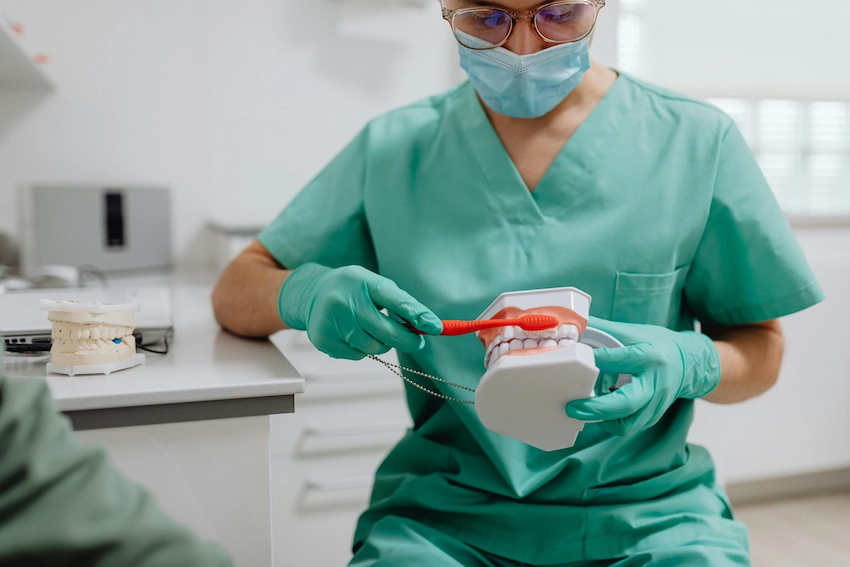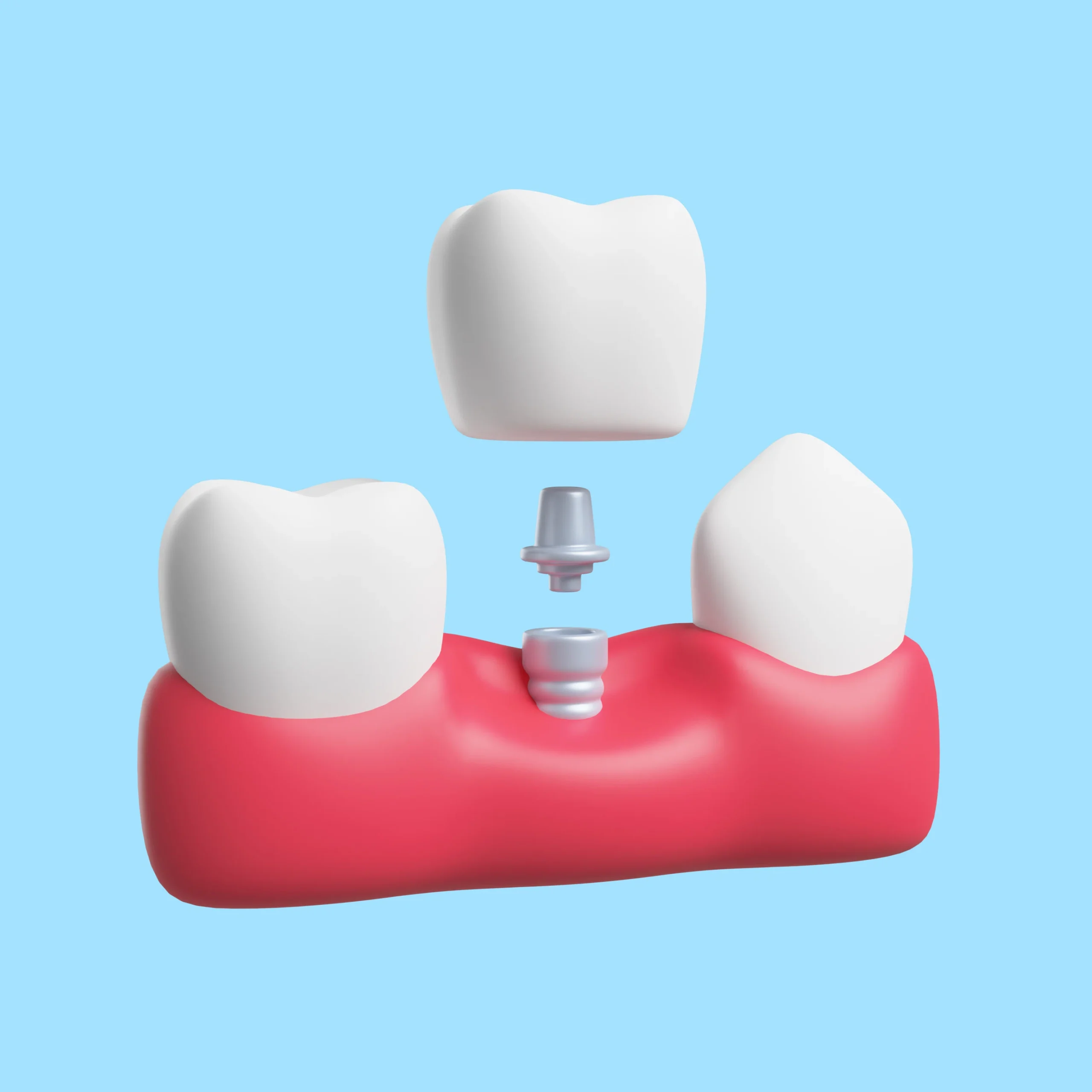🦷Why Does a Root Canal Treated Tooth Hurt?

When you think of a root canal, you may believe it’s an answer to tooth pain, however, when a tooth that has undergone root canal treatment continues to hurt you may question whether or not something went wrong. Although, it can be true that experiencing some level of discomfort following the procedure is a common occurrence; however, if the pain persists or is characterized by sharpness it may indicate the fact that there is an issue that should be addressed as soon as possible.
In this article, we are going to explain to you some of the possible reasons that can make a root canal treated tooth hurt, tell you if pain is expected and which symptoms need attention, and let you know when you should go to your regular dentist who will help solve your problem.
Is It Normal to Feel Pain After a Root Canal?
Yes, indeed, mild to moderate discomfort or soreness may be felt up to three days after undergoing a root canal procedure which can be termed normal. This can be explained by the fact that at the time of the procedure the dentist dilated and cleaned deep inside of yours even removed infected tissues hence some swelling and/or irritation are to be expected as part of the body’s natural healing process.
However, this must not be left unmonitored as in some instances pain that penetrates beyond seven days, gets worse with time, or radiates to other parts of the jaw may indicate more than just an effect of root canal therapy, and should be evaluated by your action and that of a dentist. When experiencing a root canal treatment and damaging a tooth to restore its functionality as well as comfort it is important to identify the cause of the pain in order to receive effective help.
Common Reasons a Root Canal Tooth Hurts
1. Post-Treatment Inflammation
It is worth noting that after undergoing a root canal procedure as well as such other types of surgery it is normal that the body will trigger an inflammatory response as it kicks into action to initiate the healing process. This inflammatory response may lead to sensitivity in the area or cause a dull ache for several days as the tissues around the treated tooth recover.
This response can be interpreted as a sign that the body is on the right path towards healing and can be expected in the first five days after undergoing a root canal. It is however advisable to carry on with pain-management methods and precautions as prescribed by your dentist until the situation normalizes.
2. High Bite or Pressure on the Tooth
This occurrence is also a possibility when the newly placed filling or a crown is too high, as it may cause too much force to be exerted on the treated tooth when you bite down. This can leave your tooth sore or painful every time you attempt chewing.
If I had to use a common comparison, I would refer to this as walking around in shoe heels that are too high; they appear great but can be quite uncomfortable in the long run. It is very important to make sure that your dentist checks on the filling or crown immediately after the retreatment process so you can be sure that the correction will be made in case there is a defect for you to have total relief and avoid additional inconveniences.
3. Incomplete Removal of Infected Tissue
Like I had said previously, while root canal treatment is effective for a very high number of patients, there remain instances where the probable outcome is not as good as it ought to be thus leading to others not being totally satisfied with the total procedures at different steps along the way during which such satisfaction might have been achieved.
4. Cracked Root or Tooth Fracture
Sometimes you may experience root or tooth decay and restored teeth that are worth protecting. These little cracks could be the reason why after a successful root canal, you might still feel some pain in your tooth. The tooth, however, may become unserviceable and require additional treatments or extraction for purposes of alleviating pain. Thus, if this is a possibility, it is vital to consult with your dentist on how to go about it.
5. Infection or Abscess Formation
In instances when bacteria invade or if your tooth has got a weak seal, then infection may start to settle in. The painful throbs, growing tender lump, and sometimes foul taste in the mouth could mean that you are having a tooth infection. The possible problems brought about by the infection trigger pus formation or maybe a liquid build-up making the infected part swell so much that at times it would require draining. If you think that you have an infection then it is essential to visit your dentist promptly
How Long Should Pain Last After a Root Canal?

It is imperative to comprehend that despite root canal being a frequently performed procedure, it brings with it some discomfort and sensitivity afterwards. Slight discomfort and soreness in the treated place are usually felt and they may go away within the 3-7 day time frame. This condition is quite normal and can be seen as a natural process of healing.
Despite the treatment, you feel unbearable pain that either lasts for a prolonged period of time or comes back afterwards though you felt better or becomes severe, then you should consider that there could be an underlying problem that your dentist needs to address. A regular dental check-up will help know if the pain is a common occurrence or something more serious and it will serve as the basis for further investigation if need be.
How to Relieve Pain After a Root Canal
The first step to consider is taking over-the-counter pain relievers such as ibuprofen with proper consultation from your doctor to help ease this discomfort which may arise post-operation mode.In order to have a healthy recovery process, refrain from chewing anything too hard or even soft for that matter on the affected side of one’s mouth until your dentist puts in place a permanent crown.
It is important to keep in mind that using cold packs to ease swellings would likewise help return some form of normalcy back to the area despite other pains continuing after initial treatment. The fact of the matter is that after going through all these other tips listed above, it is necessary to eat soft foods for every few days so as not to overstress any areas already under stress.
A highly effective method for alleviating discomfort after undergoing the process of a root canal is performing gentle rinses in your mouth with a warm saline solution so it can give comfort to your oral cavity by reducing any inflammation from the inflamed areas that one can rinse around therein as well the benefits that are brought forth in removing and curbing more accumulative bacteria growth making sure it’s clean and healed properly after such a dental procedure.
Hence, enacted as providing yourself the much-needed healing help by directly treating the affected areas in the tissue around by means of rinsing them mutually with these harmless warm saline solutions from once or twice daily for a minimum period of two to three days although in a lesser period than this the patients should feel the benefit in terms of increased relief noticed, hygiene improvement and signs of healing in the concerned area.
This, however, does not provide any guarantee that the pain or discomfort felt on one’s affected area will subside suddenly when no such results are forthcoming then one needs to consult the dentist who will be able to give a proper diagnosis as whether there are any additional aspects such as an allergic reaction or another procedure that would need treatment.
Are you still experiencing pain after undergoing a root canal? It is significant to learn the aspect of why a tooth once treated with root canal still has the ability to hurt its patients, what kinds of healings are considered as normal, what kinds are undesirable, and when one should return for follow-up care with dentist.
Can a Root Canal Fail?
As is the case with any dental procedure, root canals, whilst having a near perfect success rate, can, unfortunately, fail at times. There exist many different reasons for which root canals can encounter problems through the years, causing harassment to even the most resilient person.
If one can consider the fact that root canals are just another life experience and send themselves to the right place mentally the chances can be increased not only to get a new success recipe of the teeth treatment but also to save all the mental fortitude for future hardships.
- Hidden canals left untreated
- Bacterial contamination
- Broken or cracked tooth structure
- Delayed placement of a crown or permanent restoration
Furthermore, in certain instances when the root canal is not getting the proper healing benefits from a performance of root canal treatment, additional management approaches such as retreatment or an apicoectomy which is also a minor surgical procedure.
Frequently Asked Questions About Root Canal Pain
Pain after a root canal could mean lingering infection, inflammation, or pressure from clenching. It may also indicate an untreated canal or a hidden fracture.
Yes, a root canal-treated tooth can hurt years later due to reinfection, cracked roots, or a failing restoration. Dental X-rays can help diagnose the issue.
Symptoms of failure include swelling, pain, or a recurring abscess near the treated tooth. A dentist can confirm this with an X-ray and evaluation.
Antibiotics may ease pain or swelling temporarily, but they won’t cure a failed root canal. Retreatment or surgery is usually required.
Signs include constant pain, pus, swelling, or a pimple-like bump on the gums. A dental exam and X-ray are needed to confirm infection.




